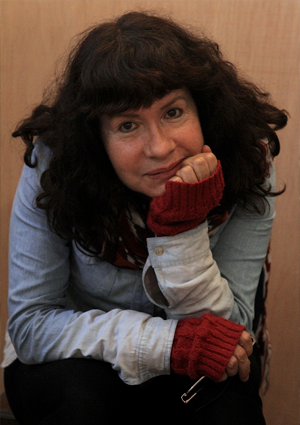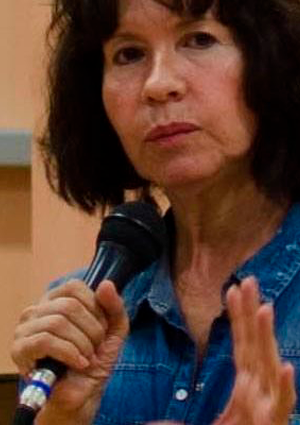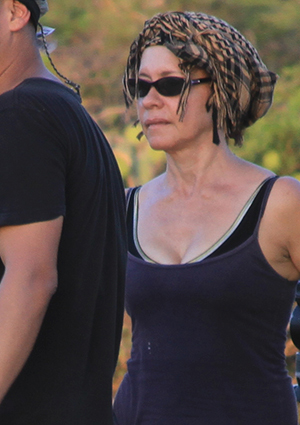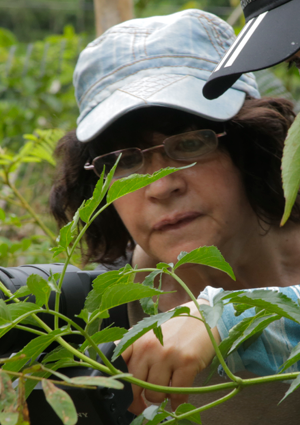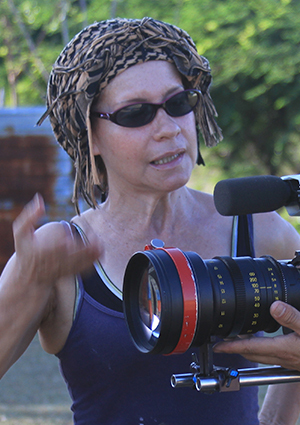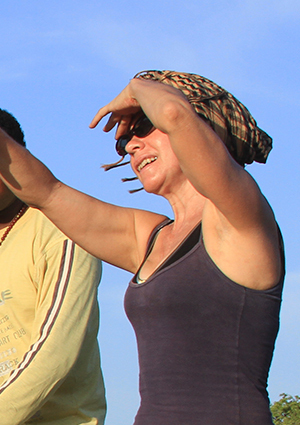Director, Screenplay, Executive Producer, Screenplay Consultant, Edition, Executive Producer
Priscila Padilla
Priscila Padilla is a film and television screenwriter, director, and producer with over 30 years of experience in research, scriptwriting, audiovisual project development and management, and documentary script consulting. Her extensive academic background has shaped her work into a deeply personal narrative and visual style, where the conflicts between women and society form a central storytelling axis.
A graduate in Film Directing from the Conservatoire Libre du Cinéma Français in Paris, France, Padilla has also studied Film Aesthetics, Art History, Music Appreciation, Film and Television Production, Television Writing, Actor Direction, Documentary Aesthetics, Film Editing, and Life Stories.
Among Priscila Padilla’s most acclaimed works is a cinematic triptych exploring women’s bodies in diverse cultural and political contexts. La eterna noche de las doce lunas (The Eternal Night of Twelve Moons) tells the story of women’s bodies in Wayuu culture; Biabu chupea: Un grito en el silencio (Biapu Chupea: A Cry in the Silence) addresses female genital mutilation in the Embera Chamí community; and Un nuevo amanecer (A New Dawn) examines women’s bodies in the context of war and peace.
Un nuevo amanecer premiered in Colombian theaters on April 24th, 2025, after screening at several international festivals, including the Bogotá International Film Festival (BIFF, 2024), the Cali International Film Festival (2024), the Iberian and Latin American Film Festival (France, 2025), and the JEONJU International Film Festival (South Korea, 2025), among others. Biabu chupea: Un grito en el silencio was featured at Hot Docs – the Canadian International Documentary Festival; the Málaga Film Festival in Spain (Asserting Women’s Rights Section – Audience Award, 2021); the Bolivia International Human Rights Film Festival (Pukañawi Award, 2020); and the Amazon Caribbean International Documentary Film Festival, FIFAC (Best Feature-Length Documentary, 2020), among other notable events.
La eterna noche de las doce lunas was part of the Official Selection at the Berlin International Film Festival and was Colombia’s submission to the Goya Awards, presented by the Spanish Academy of Cinematic Arts and Sciences (2014). It received the Best Documentary and Audience Awards at the Latin American Film Festival of Catalunya (2014), the Special Jury Prize for Best Documentary at the Cartagena International Film Festival (2013), and the Best Documentary Feature award at the Toulouse Latin American Film Festival (2013), among others.
Her filmography also includes the documentary Las Mujeres por la Paz y Contra la Guerra (Women for Peace and Against War, 2004), produced by the International Organization for Migration (IOM) and the Communications Directorate of what was then the Ministry of Culture; the feature-length documentary Cómo Volver a Nacer (How to Be Reborn, 2005), produced by the Global Fund for Women and the United Nations Development Fund for Women (UNIFEM); and Los Huéspedes de la Guerra (The Guests of War, 2006).
Her debut in cinema was the 16mm short film Memoria, Viva (Living Memory, 1989). Between 1990 and 1992, she directed four episodes of the television documentary series Artesanos en Bogotá (Artisans in Bogotá), marking the beginning of a career dedicated to nonfiction formats. From 1993 to 1994, she directed four episodes of La Historia de la Radio en Colombia (The History of Radio in Colombia). She later created the TV documentary Los Rituales de la Ausencia (The Rituals of Absence, 1995) for the Ministry of Culture, earning a nomination for the Simón Bolívar National Journalism Award.
Her documentary Ilusiones de Radio (Radio Dreams, 1995–1996) received the Verbo Films “Image Creators” Award for Best Documentary Script in Brazil. She also directed the 15-episode documentary series Las Mujeres Cuentan (Women’s Stories, 1997), which received an Honorable Mention for Best Documentary Series from the Latin American Network of Cultural Television – R.A.L. in Punta del Este, Uruguay. Her mid-length TV documentary Sueños de Vida (Dreams of Life, 2001–2002) received a Human Rights Mention at the Los Tres Continentes International Documentary Festival (Argentina). She also created the children’s series Bogotá, Fuera de Clase (Bogotá, A class of its own, 2007–2008) for the Kellogg Foundation and Fundación Nueva Cultura de Colombia, and directed Nacimos el 31 de Diciembre (We Were Born on December 31st, 2008–2011).
In addition, she provided script consulting for the documentary No Odiarás (You Shall Not Hate, 2020), produced by El Espectador newspaper and the Embassy of Germany.
Padilla’s expertise has led her to serve on juries for various audiovisual competitions, including MinTIC’s Cámara 2023 initiative, the Regional Documentary Production Fund of the FDC (2023) in the Feature Documentary Post-Production category, the fifth edition of the Platino Awards for Ibero-American Cinema (2022) in the Documentary category, and the IDARTES – Cinemateca Lab (2019), where she mentored audiovisual treatments, research projects, and narrative development. She also served as a juror for the VENTANAS Documentary Call organized by the Department of Communication and Language at the Pontificia Universidad Javeriana in Bogotá.
She has also led the Documentary Production Workshop for the Arauca Department of Culture, and the Lights, Camera, Women in Action seminar by Bogotá’s Mayor’s Office, as part of the Women and Gender program.
Filming
Director
A NEW DAWN (2025)
Director
Director
Director
LOS HUÉSPEDES DE LA GUERRA (2006)
Screenplay
A NEW DAWN (2025)
Screenplay
Screenplay
Screenplay
LOS HUÉSPEDES DE LA GUERRA (2006)
Executive Producer
Screenplay Consultant
NO ODIARÁS (2022)
Edition
A NEW DAWN (2025)
Executive Producer
A NEW DAWN (2025)

